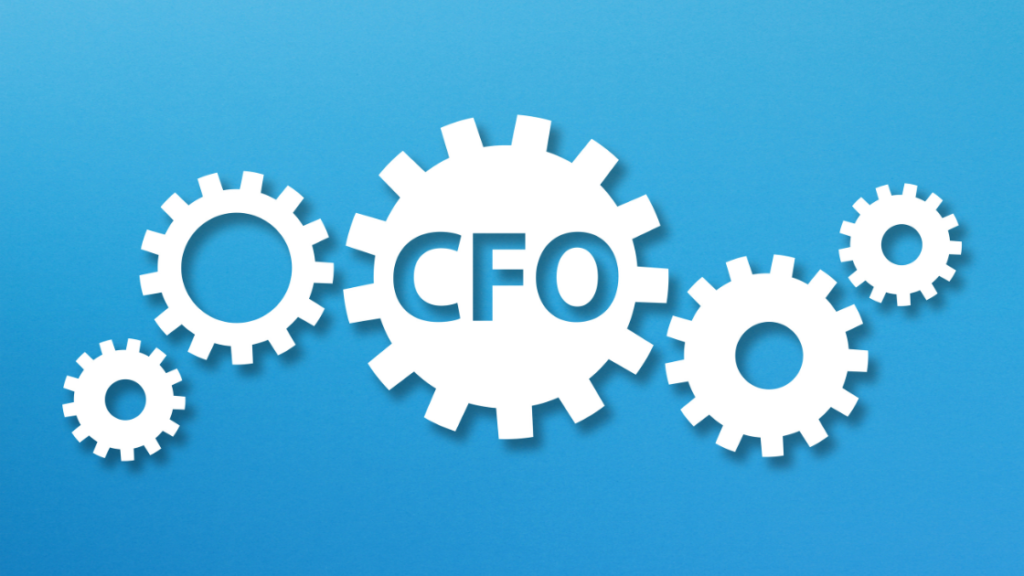What is a Fractional CFO and how does it differ from a traditional CFO?
A Fractional CFO is a financial expert who offers part-time or project-based services to companies in need of financial guidance. Unlike a traditional CFO, a fractional CFO provides flexible and cost-effective solutions, tailored to the specific needs of a business, without the commitment of a full-time hire.
Key Highlights
- A fractional CFO is a part-time CFO who provides financial expertise and strategic planning to organizations.
- They have extensive experience as CFOs and can help with cash flow management and improving financial performance.
- Hiring a fractional CFO is a cost-effective way to access high-end CFO skills without the expense of a full-time CFO.
- They can assist with specific financial challenges, such as cash flow issues, low gross margins, and high expenses.
- Fractional CFOs are skilled in financial strategy and can help businesses develop long-term goals and plans.
Introduction

In today’s fast-paced business environment, financial expertise is crucial for companies to thrive and grow. However, hiring a full-time Chief Financial Officer (CFO) may not be feasible for every organization. This is where a fractional CFO comes into play. A fractional CFO is an experienced CFO consultant who provides services for organizations on a part-time, retainer, or contract basis. They offer the skills and expertise of a high-end CFO without the cost of hiring a full-time CFO.
A fractional CFO is not the same as an interim CFO or a full-time CFO. While an interim CFO fills the gap between full-time CFOs, a fractional CFO’s duties are typically on a project basis and specifically tailored to the company’s challenges or goals. They provide financial expertise, strategic planning, and cash flow management services to help organizations overcome financial challenges, achieve growth, optimize strategy, raise capital, and navigate audits or transactions.
Understanding the Fractional CFO Concept

To fully grasp the role of a fractional CFO, it is important to understand the concept of fractional CFOs and how they differ from interim CFOs. A fractional CFO is a part-time CFO who works with organizations on a contractual basis, providing financial planning and strategic guidance. Unlike an interim CFO who fills a temporary position, a fractional CFO’s services are project-based and tailored to the specific needs of the company. This allows organizations to access the expertise of a CFO without the full-time commitment and cost associated with hiring a permanent CFO.
Defining a Fractional CFO
A fractional CFO is an experienced CFO consultant who provides services for organizations in a part-time, retainer, or contract arrangement. Unlike a full-time CFO who oversees and maintains all general financial strategy or an interim CFO who performs CFO duties before or between CFO hires, a fractional CFO’s duties are typically on a project basis and specifically tuned to the company’s particular challenges or goals. They bring their financial expertise and strategic planning skills to help organizations achieve their financial goals and overcome specific financial challenges. The part-time nature of their role allows them to work with multiple organizations, providing valuable CFO services without the need for a full-time commitment.
The Evolution of the Fractional CFO Role in Modern Business
The role of the CFO has evolved over the years, and the emergence of fractional CFOs is a testament to that evolution. Traditionally, the CFO was responsible for overseeing all financial aspects of a company, from financial reporting to budgeting and strategic planning. However, with the changing landscape of business and the increasing demand for financial expertise, the role of the CFO has become more specialized.
Fractional CFOs have adapted to this changing landscape by providing their expertise on a project basis. They work closely with business owners and executives to identify and address specific financial challenges, develop strategic plans, and optimize financial performance. This adaptability allows fractional CFOs to provide targeted solutions to meet the unique needs of each organization, making them an invaluable resource for businesses of all sizes.
Key Responsibilities of a Fractional CFO

A fractional CFO is responsible for various key responsibilities that revolve around financial strategy, financial reporting, and cash flow management. Their primary role is to develop and implement financial strategies that align with the organization’s goals and objectives. They provide financial reporting and analysis to help business owners make informed decisions and monitor the financial health of the company. Additionally, they play a crucial role in cash flow management, ensuring that the organization has sufficient funds to meet its financial obligations and support its growth and expansion plans.
Financial Strategy and Vision
One of the key responsibilities of a fractional CFO is to develop and implement financial strategies that align with the organization’s vision and goals. They work closely with business owners and executives to understand their objectives and develop a strategic plan that will drive financial performance and support business growth. This includes analyzing financial data, identifying areas for improvement, and making recommendations to optimize financial performance. By developing a comprehensive financial strategy, a fractional CFO helps the organization navigate challenges, make informed decisions, and achieve long-term success.
Cash Flow Management and Forecasting
Effective cash flow management is critical for the success of any organization, and a fractional CFO plays a vital role in this aspect. They analyze cash flow patterns, monitor cash inflows and outflows, and develop strategies to ensure that the organization maintains a healthy cash flow position. This includes forecasting future cash flow needs, identifying potential cash flow gaps or surpluses, and implementing measures to optimize cash flow. By providing visibility into the organization’s cash flow, a fractional CFO helps business owners make informed decisions, manage working capital effectively, and ensure the financial stability of the company.
Budgeting and Expense Control
Budgeting and expense control are essential for maintaining financial stability and optimizing resource allocation. A fractional CFO is responsible for developing and managing the organization’s budget, ensuring that it aligns with the strategic objectives and financial constraints of the company. They analyze historical financial data, identify cost-saving opportunities, and implement measures to control expenses and optimize resource allocation. By closely monitoring expenses and ensuring that they are in line with the budget, a fractional CFO helps the organization achieve its financial goals and improve overall financial performance.
The Strategic Advantage of Hiring a Fractional CFO

Hiring a fractional CFO offers several strategic advantages for businesses. Firstly, it is a cost-effective solution as it allows organizations to access the expertise of an experienced CFO without incurring the full-time cost of hiring a permanent CFO. This is especially beneficial for small and medium-sized businesses with limited financial resources. Secondly, a fractional CFO provides flexibility by working on a project basis, allowing organizations to scale their financial management needs based on their specific requirements. This flexibility ensures that businesses have access to the necessary financial expertise when needed, without the financial burden of a full-time CFO.
Flexibility and Cost-Effectiveness
Flexibility and cost-effectiveness are two key advantages of hiring a fractional CFO. Unlike a full-time CFO, a fractional CFO can be engaged on a project basis or for a specific period of time, making them an ideal resource for businesses during lean times or when specific financial challenges arise. This allows organizations to access the expertise of a CFO without incurring the long-term costs associated with a full-time hire. Additionally, the cost of hiring a fractional CFO is typically lower than that of a full-time CFO, making it a cost-effective solution for businesses looking to optimize their financial management.
Expertise on Demand for SMBs
Small and medium-sized businesses (SMBs) often face unique financial challenges due to their size and limited resources. Hiring a fractional CFO can provide SMBs with the expertise they need to overcome these challenges and make informed financial decisions. Fractional CFOs have extensive financial expertise and can offer valuable insights and guidance to help SMBs navigate financial complexities, improve financial performance, and achieve their business goals. By leveraging the expertise of a fractional CFO, SMBs can access high-level financial management skills without the cost of hiring a full-time CFO.
Bridging the Gap: Operational to Strategic Financial Planning
One of the key advantages of hiring a fractional CFO is their ability to bridge the gap between operational and strategic financial planning. While operational finance focuses on day-to-day financial activities, strategic financial planning involves long-term financial decision-making to support the organization’s growth and sustainability. A fractional CFO brings the necessary expertise to develop and implement strategic financial plans, aligning financial goals with overall business objectives. By bridging this gap, a fractional CFO ensures that the organization’s financial decisions are informed, strategic, and aligned with long-term goals.
How a Fractional CFO Drives Business Growth

A fractional CFO plays a crucial role in driving business growth by providing strategic financial guidance and expertise. They help businesses overcome financial challenges, optimize financial performance, and develop strategies for sustainable growth. By analyzing financial data, identifying areas for improvement, and making informed recommendations, a fractional CFO helps organizations navigate financial complexities and make sound financial decisions. Their expertise in scaling up operations and managing financial challenges makes them an invaluable asset for businesses looking to achieve long-term growth and success.
Navigating Financial Challenges in Scaling Up
Scaling up a business can pose significant financial challenges, from managing cash flow to optimizing resource allocation. A fractional CFO can help organizations navigate these challenges by providing strategic financial planning and guidance. They analyze the financial impact of scaling up operations, identify potential risks and opportunities, and develop strategies to ensure the organization’s financial stability and success. By working closely with business owners and executives, a fractional CFO helps businesses make informed decisions, allocate resources effectively, and achieve sustainable growth.
Securing Financing and Investor Relations
Fractional CFOs play a crucial role in securing financing and managing investor relations for businesses. They have experience in raising capital and can assist companies in presenting their financial information in a way that appeals to potential investors. Fractional CFOs can help companies identify and pursue different financing options, such as debt or equity funding, and guide them through the due diligence process.
In addition, fractional CFOs can assist with managing relationships with existing investors, providing them with regular financial updates and answering any questions or concerns they may have. By having a fractional CFO handle the financial aspects of securing financing and managing investor relations, companies can focus on other core aspects of their business. This ensures that they have the necessary resources and support to fuel growth and achieve their financial goals.
Implementing Advanced Financial Tools and Systems
Implementing advanced financial tools and systems is essential for businesses to effectively manage their finances and make data-driven decisions. Fractional CFOs have expertise in identifying and implementing the right financial tools and systems based on the company’s needs. These tools can streamline financial processes, improve financial analysis capabilities, and provide real-time visibility into financial performance.
By leveraging these advanced tools and systems, companies can better track and analyze key financial metrics, identify trends, and make informed strategic decisions. Fractional CFOs can also provide guidance on how to interpret and utilize the data generated by these tools, ensuring that businesses have accurate and actionable financial insights. This allows companies to optimize their financial performance, identify areas for improvement, and make informed decisions to drive growth and profitability.
Industry-Specific Benefits of a Fractional CFO

Fractional CFOs provide industry-specific benefits by tailoring their financial management strategies to the unique needs and challenges of different industries. For tech startups, fractional CFOs can navigate rapid growth by providing financial insight and guidance on scaling operations, managing cash flow, and securing funding. In the manufacturing industry, fractional CFOs help streamline operations and improve cost efficiency through financial analysis and strategic planning. In the e-commerce sector, fractional CFOs assist with managing cash flow in a dynamic sales environment, optimizing profitability, and implementing financial systems to support growth.
Tech Startups: Navigating Rapid Growth with Financial Insight
Tech startups often experience rapid growth, which comes with unique financial challenges. Fractional CFOs can provide the financial insight and expertise needed to navigate this growth successfully. They can help startups develop financial forecasts, manage cash flow, and secure funding to support expansion. Fractional CFOs also assist with financial analysis, identifying key metrics for growth tracking and providing strategic guidance on scaling operations. By working with a fractional CFO, tech startups can leverage their expertise to make informed financial decisions, optimize profitability, and position themselves for long-term success.
Manufacturing: Streamlining Operations and Cost Efficiency
In the manufacturing industry, operational efficiency and cost management are crucial for profitability. Fractional CFOs with experience in manufacturing can provide valuable insights and guidance on streamlining operations and improving cost efficiency. They can analyze production processes, identify areas for optimization, and implement financial systems that support cost control. Fractional CFOs can also assist with inventory management, pricing strategies, and supply chain optimization. By leveraging their expertise, manufacturing companies can reduce costs, improve profitability, and position themselves for sustainable growth in a competitive market.
E-commerce: Managing Cash Flow in a Dynamic Sales Environment
E-commerce businesses operate in a dynamic sales environment, where managing cash flow is essential for success. Fractional CFOs can help e-commerce companies effectively manage their cash flow by implementing cash flow forecasting tools, optimizing payment processes, and developing strategies to improve working capital management. They can also assist with financial analysis to identify trends and patterns in sales and expenses, enabling businesses to make informed decisions to maximize profitability. By working with a fractional CFO, e-commerce companies can ensure they have the financial resources to support growth, manage cash flow effectively, and navigate the unique challenges of their industry.
Choosing the Right Fractional CFO for Your Business

Choosing the right fractional CFO for your business requires careful consideration and due diligence. It’s important to assess the CFO’s qualifications, experience, and industry expertise to ensure they align with your company’s needs. Consider the scope of the fractional CFO’s services and whether they can provide the specific financial support and guidance you require. Additionally, evaluate the integration process of the fractional CFO into your team and their ability to work effectively with your business owner and other key stakeholders. Whether you need a fractional CFO on a project basis or as a long-term partner, selecting the right professional is crucial for maximizing the benefits they can bring to your business.
Essential Qualities and Skills to Look For
When choosing a fractional CFO, there are several essential qualities and skills to look for. Professional experience is crucial, so consider the CFO’s track record and the industries they have worked in. Look for a CFO who has experience in handling financial challenges similar to those your company is facing. Strong analytical and strategic planning skills are also important, as well as the ability to communicate effectively and work collaboratively with your team. Due diligence is key in evaluating a fractional CFO, so consider asking for references or reviewing client testimonials to ensure their expertise and professionalism.
The Process of Integrating a Fractional CFO into Your Team
Integrating a fractional CFO into your team involves a strategic process to ensure a seamless collaboration. The first step is to clearly define the goals and expectations of the fractional CFO’s role within your team. This may involve developing a comprehensive onboarding plan, including introductions to key team members and providing access to necessary financial information. Regular communication and collaboration between the fractional CFO and your business owner are essential for success. This can involve weekly or monthly meetings to discuss financial performance, strategic decisions, and progress towards goals. The integration process should also include regular feedback and performance evaluations to ensure the fractional CFO is effectively contributing to your team and driving positive financial outcomes.
Conclusion
In conclusion, a fractional CFO can revolutionize your business by providing expert financial guidance and strategic vision without the commitment of a full-time hire. Their role in managing cash flow, budgeting, and financial planning is crucial for sustainable growth. With industry-specific expertise, they can navigate challenges unique to your sector, ensuring financial stability and growth. If you’re considering the benefits of a fractional CFO for your business, reach out to us to explore how this strategic partnership can elevate your financial success.
Frequently Asked Questions
What Is the Typical Duration of Engagement with a Fractional CFO?
The typical duration of engagement with a fractional CFO varies depending on the company’s needs. It can range from a few months to several years, depending on the scope of the project or the ongoing financial support required. Fractional CFOs can be engaged on a project basis or as an interim CFO between permanent hires, providing flexibility and scalability for businesses.

